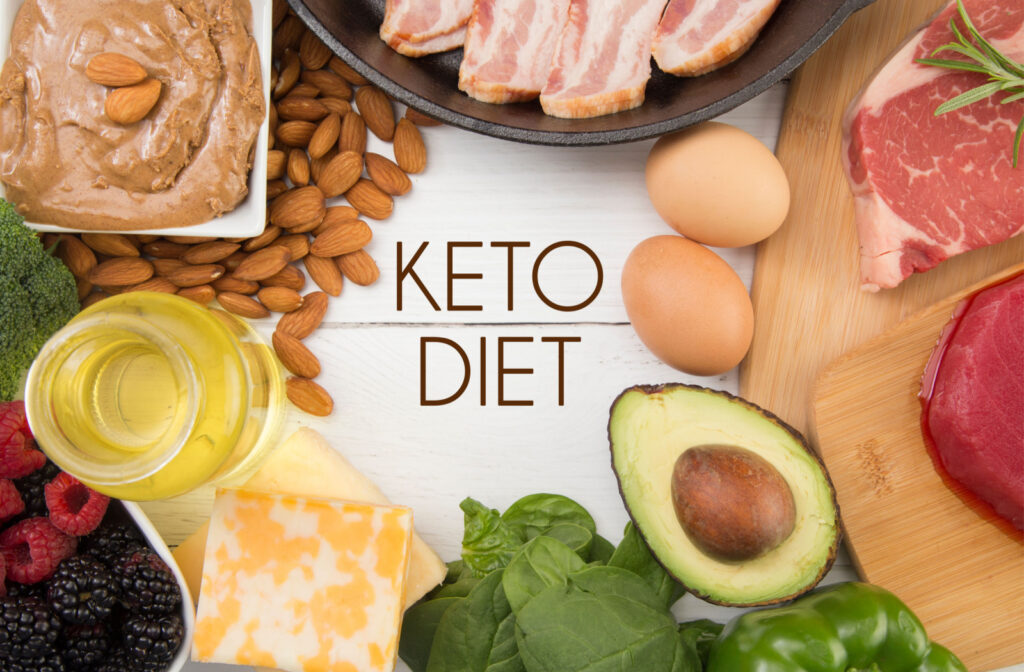As we get older, what we need from our food can shift, often making us more conscious of the food we consume and the diets we follow. With so many older adults dealing with chronic illnesses, making smart food choices becomes key for keeping us in good health and without disease.
Lately, the keto diet has gained popularity among younger generations, but what about with older adults? Is the keto diet healthy for them? The answer is that it depends on the individual looking to try out a keto lifestyle, as many factors can make or break the safety and effectiveness the diet.
Before switching to the keto diet, it is important to explore the science behind it, the potential benefits and risks, and whether it’s a practical change to take on.
At Meadow View Senior Living Community, we’ve got you covered! We’ve got a host of amenities and services that are just right for the health needs of our residents. We have doctors check in regularly and we take a comprehensive approach to wellness. We can even cater to all kinds of dietary needs and requests!
The Science of Keto
The ketogenic, or keto, diet is all about shifting your body’s main energy source from carbohydrates to fats. Normally, your body breaks down carbs into glucose for energy, but when you’re on a keto diet, you’re not eating many carbs. So your body has to start burning fat for fuel instead. This state is known as ketosis.
Now, the science behind why this works is pretty fascinating. When your body enters ketosis, it starts producing small fuel molecules called ketones.
These are made from fat in your liver and can be used as fuel throughout the body, especially in the brain.
The brain is a hungry organ that consumes lots of energy every day, and it can’t run on fat directly–it can only run on glucose or ketones.
So by following a keto diet, you’re almost turning your body into a fat-burning machine. Some people find this really helps them lose weight. But more importantly, because you’re cutting out a lot of processed foods and sugars, some people find they have more steady energy levels and less ups and downs throughout the day.
It’s important to remember though, while the keto diet can be beneficial for some, it might not be right for everyone. It’s always best to chat with a healthcare professional before starting any new diet plan.
Can Keto Benefit Older Adults?
There is a range of debate on this. On one hand, the keto diet might have some benefits for older adults. It’s high in protein, which can help promote muscle synthesis. That’s really important as we get older and naturally start to lose muscle mass.
The keto diet can also help with heart health, providing better energy, can help with clearer skin, and reduced levels of inflammation.
Some research also suggests that the ketones produced on a keto diet might even help prevent cognitive decline. More on that later.
But on the other hand, there are some risks to consider. The keto diet is pretty restrictive, and not everyone finds it easy to stick to. Plus, cutting out whole food groups can easily lead to nutrient deficiencies if you’re not careful.
So, is keto good for older adults? Like most things, it probably depends on the individual. If you’re thinking about trying the diet, it’s always a good idea to chat with your doctor or a dietitian first.
How Keto Can Affect Cognitive Function
As we get older, a lot of us start worrying about our memory and brain health. Conditions like dementia and Alzheimer’s are pretty common and can be really scary. But here’s something interesting–some studies show that the keto diet might actually help with this.
How does it work? As mentioned before, when you’re on a keto diet, your body starts burning fat for fuel instead of carbs. This process creates ketones that are used as fuel by the brain. Not only can this give your brain a nice little energy boost, but it can also help reduce inflammation.
Does this mean eating a keto diet will prevent these cognitive conditions? There’s not enough evidence to suggest that, but there’s evidence to suggest it might delay the onset or even improve symptoms in people who already have dementia and Alzheimer’s!
Potential Drawbacks of Keto
As with most things in life, there are also downsides to the keto diet for older adults.
When older adults first start up keto, they might feel a bit under the weather. This is called the keto flu–symptoms feel just like the regular flu.
If you’re feeling tired, can’t think straight, craving sweets or carbs more than usual, getting muscle cramps, or having tummy troubles within the first few days of starting keto, it’s likely you’ve caught the keto flu.
Another possible drawback is that keto may lead to an increased risk of kidney stones. Older adults are already at a higher risk of developing kidney-related problems, so it is essential to consult a doctor before trying the keto diet.
In addition, the keto diet may not always provide enough fiber and come with other nutritional deficiencies, which can lead to constipation and other digestive problems.
How to Make Keto Safe for Seniors
To make the keto diet work for older adults, it is vital to take precautions and make adjustments.
One way to do so is by incorporating nutrient-dense foods that are high in fiber, vitamins, and minerals. Some examples include leafy greens, avocados, nuts, and seeds.
Older adults should also increase their water intake to avoid dehydration, which can be a common side effect of the keto diet.

Implementing the Keto Diet for Seniors
The keto diet can be a healthy option for older adults if done correctly. However, it is crucial to consult a doctor before starting a new diet, especially if older adults have underlying medical conditions.
With proper planning and advice, older adults can reap the benefits of the keto diet and enjoy a healthy, fulfilling life. Meadow View Senior Living Community is here to help your loved ones with the proper planning and nutritional support. Book a tour today to see how we can help.



